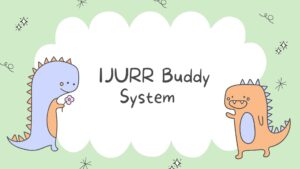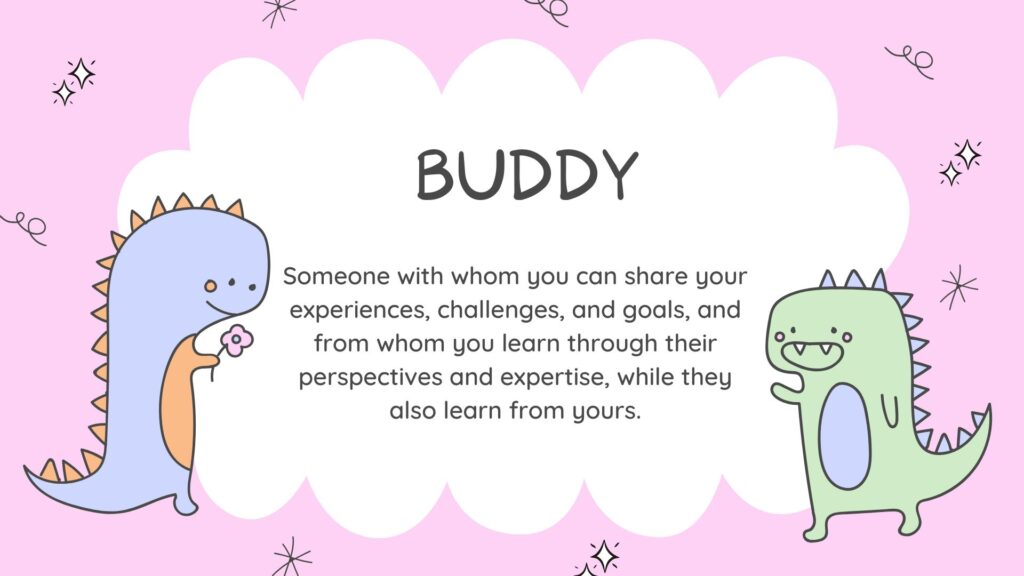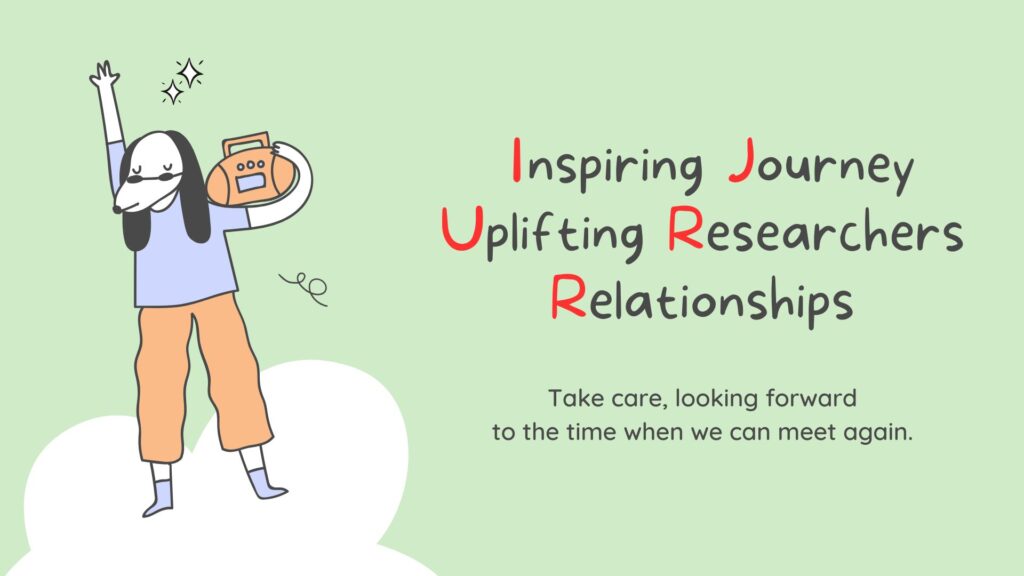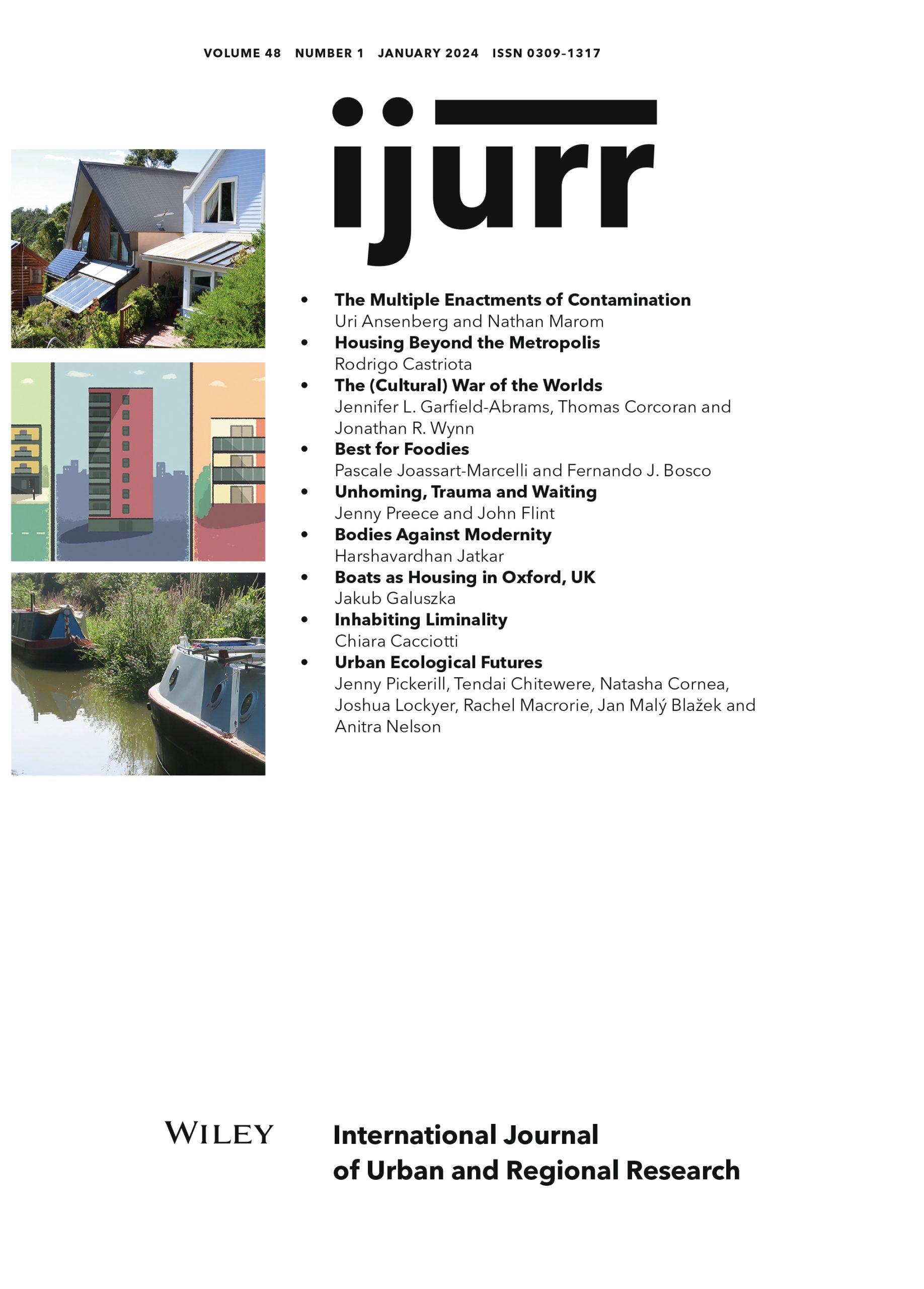In this blog, Dr Aireen Grace Andal explains the motivation behind her creation of the ‘IJURR Foundation Buddy System’ and how she helped build a community of awardees.
Published: 14.11.25
On building quiet human infrastructures of care in global academia
The IJURR Buddy System, an initiative born of the awardees themselves, seeks to forge meaningful connections between past and present recipients. Departing from the traditional one-on-one buddy model, this experimental approach brings together outgoing and incoming cohorts in a shared space of mutual support and exchange. By fostering a sense of collective responsibility that extends beyond the confines of individual progress reports, the system aims to cultivate a deeper sense of community among awardees. It is a reminder that there are others out there who understand the struggles and the triumphs. We’ve got a community that’s real, that’s raw, and that’s supportive.

‘IJURR Buddy’ Image credit: Aireen Grace Andal
It began, as many meaningful endeavours do, with a simple discomfort: the sense that something important was amiss. Each year, IJURR recognises a new cohort of PhD scholars through its write-up and studentship awards. These awards bring prestige, affirmation, and a line on the CV with promise. Yet the awardees are dispersed to their universities, deadlines, and fragmented geographies.
I knew this feeling intimately. I had been an awardee once, in 2023, and although the award felt weighty, the solidarity somehow felt thin. I remember thinking how strange it was to know that there is a global community of urban early-career scholars, but connections are minimal. I doubted whether being an awardee is something we’re really supposed to do alone; maybe we can organise some collective immune system and, together, make sense of our shared interests, struggles, and winning moments too.
That was when the buddy system started as a vision; something simple, something human, a way to weave tiny threads of connection among people who might otherwise remain strangers. It was not imagined as a formal institutional apparatus but as a kind of “people as infrastructure” (Simone, 2021), which can hopefully soften the academic world’s sharper edges.
Because, somehow, I had the chance to connect with co-awardees even before the Buddy System started. Let me share some stories.
The awkward wonder of the first connections
The first time I reached out to some co-awardees in 2023, I felt the familiar anxiety of asking: would they reply? I was about to ask whether I could ask for recommendations on a place to stay in a city, or whether we could apply for a grant together. Would they think this was trivial? Would they suspect hidden obligations?
But they replied warmly, enthusiastically, almost with relief. It turned out that many of us had been waiting for someone else to speak first.
The buddy system online
In June 2024, we had our first-ever buddy system meeting online. It was experimental, and we didn’t even know how many would turn up… until it happened.
The 2023 and 2024 awardees were grouped together into breakout rooms to share about their research. There was a lot to cover from urban peripheries to mobility justice to extractive housing markets to the politics of belonging! But quickly the discussions spilled into the intimate terrain of what it means to be an early-career scholar navigating a world shaped by both intellectual ambition and structural precarity, including the sense of isolation, the pressure to produce, the weight of responsibility.
We shared survival strategies. We compared notes about supervisors, grants, the loneliness of fieldwork, and the grief that sometimes accompanies research in vulnerable urban communities. And in this exchange, I began to feel something shift: the award itself was no longer simply a recognition but an opening, a starting point for relationality.
Reaching back and forward, in time
The main feature of the buddy system was the way it created a bridge between cohorts. The second time we had the buddy system meeting in 2025, some awardees from earlier years began to join our conversations. Dr Sanjeev Routray, one of the first awardees of IJURR shared what had changed in his intellectual life and career since receiving the IJURR award in 2008: the opportunities they chased, the doors that opened, the frustrations that persisted. He spoke of projects abandoned, careers diverted, ethics questioned.
Meanwhile, newer awardees reached out with their own fresh uncertainties. What had the rest of us learned from experience? How did one sustain the spark of research under the weight of deadlines, funding cycles, and insecure contracts?
These exchanges created a strange and beautiful temporal layering, a community suspended between past, present, and future. What might have been a fleeting cohort became a living archive of academic becoming.

‘Buddy’ Image credit: Aireen Grace Andal
Care, just care
What I learned through all this is that connection does not emerge naturally in academia; it must be intentionally crafted. A buddy system sounds small, almost trivial, but its effects are cumulative. It gives people permission to reach out, to ask for help, to feel less alone.
Perhaps this is why the project felt so meaningful for me: it resisted the competitive logic that too often governs scholarly life. Instead of silently comparing ourselves, we shared uncertainties. Instead of guarding opportunities, we offered them. Instead of disappearing after the ceremony, we insisted on remaining visible to one another.
In retrospect, the buddy system was never about mentorship or networking in the conventional sense. It was about cultivating what feminist urbanists call micro-infrastructures of care, such as the everyday, improvisational forms of support that enable people to survive and flourish.
A missed chance, until it isn’t
Some awardees later told me that if no one had initiated this system, they might never have spoken to their cohort. Many of them were juggling time zones, caregiving responsibilities, or the exhausting demands of their first academic jobs. They appreciated the recognition but had no bandwidth to engineer new connections.
And that is precisely the paradox I wanted to address: the people who most need a support system are often the least able to build one.
Years later, I still think about how easily we could have missed one another. How the absence of connection is not dramatic or tragic but just simply silent. A door that never opens. A relationship that never begins. A missed possibility that remains invisible because it was never allowed to exist.
What remains
Today, I remain connected to awardees from multiple years. Some have become collaborators. Others have become friends. Some drift in and out of the circle, returning when they need companionship or advice. The system is not perfect, but it is alive; and that, to me, is success.
When I look back on the experience, the significance lies less in the structure itself and more in what it represents: a quiet act of resistance against the lonely individualism of academic life. A reminder that recognition without connection is incomplete. A belief that a prize should not simply reward excellence, but also cultivate community.
If I have learned anything, it is this: that the value of an award is not only in what it acknowledges, but in the relationships it can spark if someone chooses to light the first match.

‘IJURR’ Image credit: Aireen Grace Andal
Dr Aireen Grace Andal, Research Fellow
International Institute for Asian Studies, Leiden University
Previous: Afro-Indigenous Spectralities: A Network under Construction from Coastal Urbanism in Guerrero
